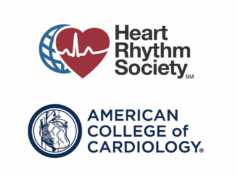 The American College of Cardiology (ACC) and the American Heart Association (AHA) have released updated clinical performance and quality measures to benchmark and improve the quality of care for adult patients hospitalised with ST-elevation and non–ST-elevation myocardial infarction (STEMI and NSTEMI, respectively).
The American College of Cardiology (ACC) and the American Heart Association (AHA) have released updated clinical performance and quality measures to benchmark and improve the quality of care for adult patients hospitalised with ST-elevation and non–ST-elevation myocardial infarction (STEMI and NSTEMI, respectively).
The rates of hospitalisation and 30-day mortality for acute myocardial infarction have been on the decline in the USA, likely due to the shift in the pattern of clinical presentation of AMI as well as to improved acute treatments and long-term care. However, AMI patients who survive the initial event still have substantial risk for future cardiovascular events, including recurrent MI, death, heart failure and stroke.
This new measure set, which updates the 2008 measure set to reflect the 2014 AHA/ACC Guideline for the Management of Patients with Non-ST-Elevation Acute Coronary Syndromes and the 2013 ACCF/AHA Guideline for the Management of ST-Elevation Myocardial Infarction, includes 24 total measures, of which 17 are performance measures and seven are quality measures. The document includes eleven new measures and addresses various care domains including: effective clinical care, communication and car coordination, efficiency and cost reduction, patient safety, community, population and public health, and also includes new patient safety quality measures.
“Implementation of this measure set by health care providers, physician practices and hospital systems will enhance the quality of care and likely improve outcomes of patients hospitalized with a heart attack,” says Hani Jneid, director of interventional cardiology research at Baylor College of Medicine, director of interventional cardiology at the Michael E DeBakey Medical Center VA Medical Center in Houston, USA, and the chair of the writing committee for the measures.
In developing the new measure set, the writing committee reviewed recent clinical practice guidelines and other clinical guidance documents. The committee also examined available information on disparities in care to address which new measures might be appropriate as performance versus quality measures for this update. The writing committee discussed which measures should be revised to reflect the updated science and worked to identify which guideline recommendations could serve as the basis for new performance or quality measures.
The document emphasises the importance of timeliness of reperfusion therapy for STEMI patients with four dedicated measures: door-to-needle time, first medical contact-device time, door-in-door-out time, and time to primary percutaneous coronary intervention (PCI) among transferred patients. The measures also underscore the importance of treating all AMI patients with dual antiplatelet therapies, as long as there are no contraindications.
“The writing committee acknowledges that the new measures created in this set will need to be tested and validated over time,” Jneid says. “By publishing this performance and quality measure set, we hope to encourage their widespread and expeditious adoption, as well as facilitate the collection and analysis of data needed to continuously assess their relevance over time.”
In the future, the writing committee members anticipate having data that will allow them to reassess whether any of the measures included in this set should be revised.









